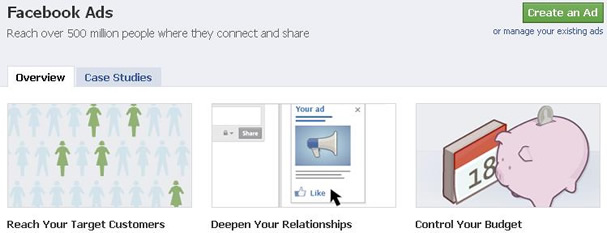
Despite hundreds of millions of active users, Facebook and other social networks are lagging behind more ‘traditional’ customer acquisition and retention tactics such as paid search (PPC) and email marketing campaigns in generating a solid ROI.
Most companies benefit from having a Facebook presence in order to support branding and awareness, however, the ability of the social giant to generate sales and revenue for Ecommerce businesses leaves much to be desired.
According to Forrester Research, the early adopters of having a shopping cart on Facebook have reported only modest results. The one group that has benefited from having a shopping cart embedded on their fan page are small retailers that don’t have a website of their own. Due to the cost effectiveness of setting up and installing a shopping cart on Facebook, when compared to building a website with a custom Ecommerce solution, many small, local businesses have found it worthwhile. For retailers of this size even a sale or 2 via Facebook can be counted as a success.
The true barrier to Facebook becoming a go to place for shopping is that most people log in to socialize – not buy products. If your goal with running ads on Facebook are strictly for direct response related purposes, you should keep your expectations low. Facebook’s ads are more like banner or display ads than a true search engine marketing campaign; and as such, click-through rates and conversion rates are generally lower.
In spite of its direct sale/response shortcomings, Facebook can be a very effective medium for improving brand awareness. As the most heavily trafficked site on the web, Facebook delivers millions of eye balls; since most ads are banners, with low click through rates (and pricing is cost per click), there’s a large number of free impressions being generated for an advertiser’s brand, products or services.
